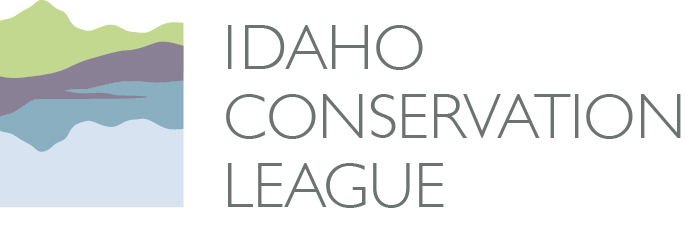For Immediate Release: Thursday, September 29, 2022
Contacts:
Jonathan Oppenheimer, ICL External Relations Director, (208) 208-345-6933 x 226
Bryan Hurlbutt, Staff Attorney, Advocates for the West, (208) 342-7024 x 206
Abby Urbanek, ICL Communications Manager, (208) 345-6933 x 214
Court levies $150,000 fine against suction dredge miner who polluted Idaho’s Clearwater River
BOISE, ID — In a September 28 ruling, Chief US Magistrate Judge Raymond Patricco levied a $150,000 fine against suction dredge miner Shannon Poe, who polluted the South Fork of the Clearwater River and refused to secure a permit as required under the Clean Water Act. The fine represents one of the largest Clean Water Act penalties against an individual in Idaho. The ruling also prohibits Poe from mining on the South Fork in the future unless he secures and complies with a Clean Water Act permit.
Represented by Advocates for the West, the Idaho Conservation League (ICL) filed the lawsuit against Poe, of California, in August 2018 for illegal suction dredge mining on the South Fork of the Clearwater River, which provides critical habitat for salmon, steelhead, bull trout and other sensitive species.
Suction dredge mining is a method of mining gold from riverbeds in which an underwater hose is used to suck up riverbed materials and then sort them for gold. After sorting, most riverbed materials are discarded from the floating dredge into the river, creating a muddy plume that flows downstream. Suction dredge mining leaves behind dredge holes and waste rock piles in the riverbed.
Suction dredge miners are required to obtain Clean Water Act permits, known as a National Pollution Discharge Elimination System (NPDES) permit, to limit the harm they cause Idaho’s rivers. Poe, however, refused to obtain the permit from the Environmental Protection Agency when he mined in the South Fork of the Clearwater in 2014, 2015 and 2018.
For years, Poe and his organization, the American Mining Rights Association, have encouraged miners to ignore federal rules on the South Fork of the Clearwater River and across Idaho.
Judge Patricco found, “it is clear that suction dredge mining (even small-scale, recreational suction dredge mining) disturbs a riverbed’s substrate and discharges sediment into the water column, causing aesthetic and environmental harm. This is especially the case in a sensitive environment like the [South Fork Clearwater River] – a critical habitat for ESA-listed species and an already-impaired river due to the failure to meet state water quality standards for sediment and temperature.”
Further, the Judge determined that Poe’s violations warranted a stiff penalty, stating: “There is no dispute that Mr. Poe violated this prohibition time and again when he suction dredge mined on the [South Fork Clearwater River] without an NPDES permit. These violations are unquestionably serious. They not only violated the law, but also caused environmental harm by lowering water quality.”
“Judge Patricco’s decision should be a warning to anyone who flouts the rules designed to protect clean water,” said Jonathan Oppenheimer, external relations director at the Idaho Conservation League. “Whether you’re a boater, angler, logger or miner, you have to follow the rules; it’s our responsibility as citizens. This ruling, which represents one of the largest Clean Water Act fines ever levied in Idaho against an individual, should send a clear message to miners, or anyone, who refuses to follow the rules.”
“The South Fork Clearwater River is an Idaho gem,” added Bryan Hurlbutt, staff attorney at Advocates for the West. “Any mining there must be held to the highest standards.”
Yesterday’s decision follows a ruling in the same case issued in June 2021 that Poe violated the Clean Water Act when he engaged in unpermitted suction dredge mining on 42 separate days. Other similar cases against dredge miners in Idaho resulted in penalties of $3,600, $6,600, and $24,000. The penalty ordered by Judge Patricco was elevated due to Poe’s repeated violations, disregard for warnings, and encouraging others to violate the law.
ICL monitors suction dredge mining and has placed several miners on notice to encourage Clean Water Act compliance and to protect Idaho’s rivers and streams from pollution. After the state assumed primacy for the Clean Water Act, dredge miners are now required to obtain an Idaho Pollution Discharge Elimination System (IPDES) Permit from the Idaho Department of Environmental Quality, along with other permits to comply with state and federal rules designed to protect sensitive species, water quality, and other public resources.
###
Dredge mining can wreak havoc on fish, wildlife habitat, riverbanks, waterways and riverbeds. A high-powered vacuum sucks up gravel and sediment at the bottom of a stream, dumps the material into a sluice box to capture gold, if any, and then spews the gravel and sediment back into the water. Video/B-roll footage available from ”Dirty Gold,” presented by Friends of the Clearwater.
ICL’s mission is to create a conservation community and pragmatic, enduring solutions that protect and restore the air you breathe, the water you drink, and the land and wildlife you love. www.idahoconservation.org
Advocates for the West is a non-profit, public interest environmental law firm headquartered in Boise, Idaho, that works to defend public lands, water, fish and wildlife throughout the American West. Visit Advocates for the West online at https://advocateswest.org/
